Congress Looking At Ways To Make Government Shutdowns Impossible
After an essentially pointless 35 day shutdown, some members of the House and Senate are proposing bills that would make government shutdowns impossible.
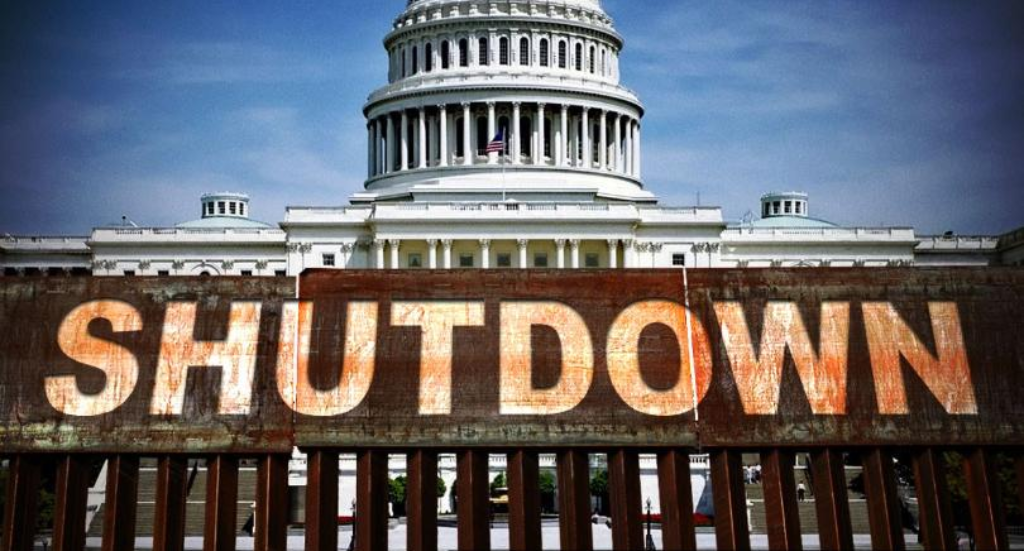
With the government shutdown finally over, The New York Times reports that some legislators are talking about laws that would essentially make government shutdowns impossible:
WASHINGTON — Was this the shutdown to end all shutdowns?
The answer could be yes. The toll exacted on government operations and federal employees by the record 35-day stalemate — not to mention the political costs to those in the White House and on Capitol Hill — was so punishing that it is giving momentum to a longstanding call to prohibit the government disruptions that have become a regular facet of Washington hardball.
“Shutting down the government should be as off limits in budget negotiations as chemical warfare is in real warfare,” Senator Lamar Alexander, Republican of Tennessee, said on Friday.
He was not alone in expressing those sentiments. Members of both parties said it was past time to enact legislation that would essentially mean the government would remain open at existing spending levels when an impasse such as the fight over the border wall was reached, rather than shuttering parts or all of the government. That’s an outcome that virtually everyone agrees is costly, unnecessary and even embarrassing.
“This never should have happened,” said Senator Lisa Murkowski, Republican of Alaska, speaking for many.
Veterans of past shutdowns have come to learn that there are few, if any, winners in the end and that closing the government has not proved effective as a negotiating strategy for those who use the government as a lever to press their case. It didn’t work for Newt Gingrich in the 1990s, for Senator Ted Cruz of Texas and House conservatives in 2013 or for Senator Chuck Schumer of New York and fellow Democrats in 2018.
Government workers are penalized through no fault of their own, constituents are inconvenienced, the nation’s image is hurt and those responsible for running the government look inept, irresponsible and unwilling to reach an accommodation. The tension in this shutdown was evident in the internal finger-pointing that broke out among Republicans as workers missed two paychecks and airports began to struggle with the absences of security workers and flight controllers.
“I’ve said repeatedly throughout this process that government shutdowns are a bad idea,” said Senator Rob Portman, Republican of Ohio. “They hurt federal employees and their families, disrupt critical government services and increase the cost to taxpayers. This shutdown confirmed what we already knew about shutdowns. Let’s do something about it now while the pain and inefficiency of this moment is fresh on our minds.”
Mr. Portman has for years sponsored legislation to prevent shutdowns, and he introduced the measure again this month as the government limped along partly closed and federal employees lined up for food assistance and other aid.
Under his plan, which has 18 co-sponsors and rising, funding at existing levels would continue for agencies covered by an appropriations measure that was not signed into law by the beginning of the fiscal year on Oct. 1, preventing any lapse that incites a shutdown. To spur a resolution, funding would be reduced by 1 percent after 120 days if no agreement is reached and by 1 percent more every 90 days.
“It is one of these moments where after many years of us trying to get something passed that ends the shutdown, I think there is support coalescing around a legislative response,” Mr. Portman said.
Senator Mark Warner, the Virginia Democrat whose state is home to tens of thousands of federal employees and contractors, introduced his own proposal, partly with the idea of shaming his colleagues and the Trump administration into avoiding such confrontations.
Searching for a bill title that would deliver the message, he and his staff came up with Stop Shutdowns Transferring Unnecessary Pain and Inflicting Damage in the Coming Years, otherwise known as the Stop Stupidity Act. In the event of funding showdowns, his approach would be to maintain spending for all but the legislative branch and the White House.
(…)
“The final language in any deal that comes out three weeks from now should put strong provisions and strong penalties in place to prevent this tactic from being used by either party or any White House or Congress in the future,” he said, a view shared by Senator Charles E. Grassley, Republican of Iowa.
“The final package should also end government shutdowns once and for all,” Mr. Grassley said.
In the House, Speaker Nancy Pelosi also welcomed the idea on Friday, saying in a meeting with news columnists that she wanted to explore the possibility of legislation that would serve as a shutdown prevention act.
As I explained in a post last week, it used to be the case that lapses in funding or the approval of appropriations bills did not lead to a government shutdown, but this changed in 1980 thanks to a legal opinion from President Carter’s Justice Department:
Prior to 1980, there were several occasions when the government fell short on passing a budget by the time required by law. During the Ford Administration, for example, there was funding lapse in 1976 that lasted 12 days. Under President Carter, there were a total of four funding lapses that lasted a total of 28 days over the course of four years. (Source) None of these lapses resulted in government shutdowns, though. Government workers continued to work and, as far as I have been able to determine continued to be paid, as did other Federal obligations. That changed in 1980 when President Carter asked his Justice Department for a legal opinion on this issue, which involved the interaction of two laws, the Budget Control Act of 1974 and the Anti-deficiency Act. The first law established the basic outlines of the budget and spending procedures that we have followed and made changes that were designed to address perceived abuses by the Nixon Administration when it came to allocating government spending. With some revisions unimportant to this discussion, this law continues to govern the budget process to this day. The second law, which has existed in one form or another since the late 19th Century, basically prohibits the Federal Government from spending money not specifically allocated. In that legal opinion, then-Attorney General Benjamin Civiletti determined that the two laws required that all Federal Government work must cease in the event of a shutdown and that no funds not specifically allocated could be paid, including salaries and payments to government contractors. In an updated opinion handed down later, Civiletti determined that government services deemed “essential” could continue, but workers covered under that category could not get paid until a funding bill was passed. (Sources here and here.)
All of this could be fixed by Congressional legislation such as that being proposed that would essentially return us to the pre-1980 status quo under which the government would continue to function at pre-existing spending levels until Congress and the President were able to agree to a new appropriations bill. As noted, the incentive to reach an agreement rather than simply coast along under pre-existing funding would be the provision that spending would be reduced by 1% across the board after pre-determined periods of time. These periods of time, at 120 days and later 90 days, are so long that it seems unlikely that we’d reach those limits. In any case, given the absolutely unnecessary pain that these shutdowns cause every time they happen, an incentive like this would likely be sufficient to spur Congress to act. At the very least, these measures would end the brinksmanship of the government shutdown game and would make the games that are played at the end of nearly every September, when Congress is generally acting at the last minute to get a budget passed for the new fiscal year.
Of course, while legislation such as this makes complete sense, there are plenty of reasons why it might not get passed. Chief among them, of course, is that there are various forces on Capitol Hill who likely continue to see government shutdowns, or the threat of such shutdowns, as a form of leverage in budget negotiations and in policy disagreements, which is what we saw in both the 2013 Obamacare shutdown and in the just-concluded Border Wall shutdown. Because of that, it’s unclear what the fate of these proposals to make shutdowns impossible might be. One possibility is that legislation of this type could end up being tied into the legislation that is eventually passed to fund the government through September 30th. Whether that comes to pass or not remains to be seen. Even if it doesn’t, though, this is an idea whose time has come.

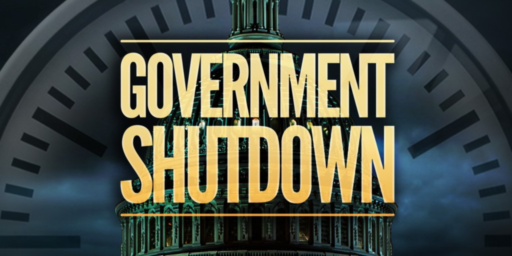
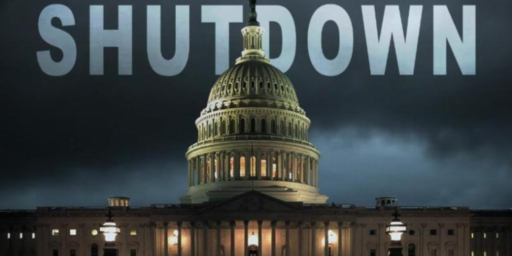
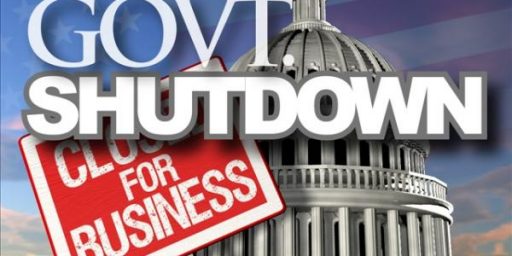
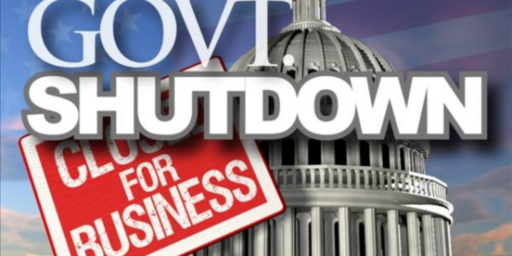
I Am Not A Lawyer, so bear with me here…
If the standing legal precedent is that the interaction of those two laws leads to this conclusion, then any legislation to fix the problem would have to repeal or modify the parts of those laws that lead to the problem, right? Which means Congress would have to guess correctly about how the new interaction of laws would be interpreted.
On the other hand, couldn’t this legal interpretation be overturned by the Supreme Court, even absent new legislation? I’m not sure who would have standing to bring the suit — perhaps one or more federal employee unions, or even the White House?
To put it bluntly, I can imagine that Civiletti’s first ruling (shut everything down) might have been correct, but I can’t imagine that his modified ruling (shut everything down except a somewhat arbitrary list of ‘essential’ functions, and require people to work without pay) can possibly have been legally correct. It seems like the easiest way to fix the problem is to overturn the ruling, and THEN (if necessary) fix the law in light of the corrected interpretation of existing law.
Of course, there is a danger in passing a law that causes the government to kick into automatic Continuing Resolution whenever Congress can’t pass a budget on time. We’ve already seen that Congress radically underestimates the impact of CRs on the nation; I would expect living under an automatic CR to become a standard part of every budget cycle.
I don’t see it happening as long as Trump is president, but I definitely think the next Dem nominee should run on it in 2020. It will definitely be a popular move, and despite your bothsiderist premise about “various forces on Capitol Hill” having incentives to keep the shutdown threat around, since the 1990s this tactic has been almost entirely a Republican tactic. In any case, I don’t see much of an incentive for Dems to keep it around: putting aside the damage and chaos it causes for the moment, it’s just not a very effective method of achieving desired policy goals. For years I’ve occasionally run across liberals who tell me Dems should be willing to “play hardball” like the GOP does and force shutdowns to get the things they want. The problem with that premise is, what has the GOP succeeded at in any of these shutdowns? In 2013, they didn’t succeed in defunding Obamacare or Planned Parenthood. In 2018, the Dems didn’t get a DACA deal. And, of course, this year’s shutdown has not resulted in funding for a wall. The GOP for a variety of reasons seems attached to these conflicts despite the lack of good it does them policy-wise; the Dems should have no such incentives at this point.
@Kylopod:
Regarding the “both sides” argument. It is worth noting that there were funding lapses under President Carter when the government was controlled by Democrats across the board. So the idea that this isn’t something that hasn’t been done on a bipartisan basis.
Removing shutdowns as a political tool should happen as a matter of principle, so these efforts should be supported. Porter’s bill, coming from a Republican, could actually get passed, but I’ve got a real problem with the “spur a resolution” trigger. I don’t see how across the board 1% decreases in funding serve as an incentive for small government Republicans to cooperate. Maybe in Defense spending is included, but Defense spending always seems to get exemptions from any automatic funding reductions.
What?
Do what you want, but passing laws will not make Congress wiser, saner, or more responsible and won’t stop voters from foolishly voting in careerist assholes or rabid partisans. To get wiser, saner, more responsible government, voters need to vote in wiser, saner, and more responsible office holders and better people will need to run. I don’t see it happening for the remainder of my lifetime, but fortunately, I’m old.
First, this is something that is long overdue.
Second, advancing that legislation — beyond being good for the country overall — would be a smart political move for the Democrats. It would be even smarter to go with the Porter framework and tout it as a bi-partisan solution.
Beyond playing to their base and independents, it is one of those things that would push on the existing fault lines within the Senate GOP and also with the President.
I agree it’s unlikely that Trump would sign such legislation, but getting it killed by the Senate or worse, by the President, would only improve the Dem’s messaging for 2020.
The GOP should embrace it, seeing as they keep getting hurt with shut downs.
Any adults remaining in the Republican party, should stop trying to explain to baby why they shouldn’t burn the house down, and instead take the matches away.
@Kathy:
The problem is that a significant contingent of the party still likes shutdowns. No matter how many times they try it and fail at getting any substantive concessions from Dems, they manage to convince themselves that the only mistake was not going far enough–the idea that if they hold steady, Dems will eventually “blink.” It’s a neat theory because it’s absolutely impossible to disprove. Moreover, I get the sense that they just like chaos for the sake of chaos.
And it’s not clear they’ve learned the lesson that shutdowns hurt them. The 2013 one was followed a year later by an excellent election. Not that there’s any reason to think the shutdown helped them; polls at the time showed the public overwhelmingly blaming the Republicans. It’s just that, like a lot of things, it was largely or entirely forgotten with the turnover of the news cycle. So the conventional wisdom up to now has been that Republicans, at the very least, pay no political price for shutdowns. That could change if the economy goes into recession and this shutdown is seen as having been a contributing factor. But even then, I don’t think all Republicans would get the message.
Whatever their reasons or motivations, this contingent of the party does exist, and it’s why I’d be very surprised to see serious shutdown reform while Republicans are in power.
@Just nutha ignint cracker: Absolutely! And let’s not forget that Republicans are actively aiming to undermine faith in the government. Laws cannot save us. Institutions cannot save us. Only changing hearts and minds can. And we are failing here.
We need something similar with the debt limit, as we’ve had a lot of brinkmanship there in the past, and the consequences of default are far worse.
I think it would actually be dangerous to fix the shutdowns but not the debt limit.
@Gustopher:
That’s a good point.
@Kylopod:
All the more reason for the adults to take away the matches.
It’s hard to tell how much such things affect an election months afterwards. Some commentary all the way back in 1996, credited the Gingrich shut down with helping Clinton get reelected.
@Doug Mataconis:
As recently as 40 years ago! Who knew? I’m sure nothing important could have changed since then.
@Kathy:
Exactly–and there’s currently only one party being run by adults, and therefore only one party capable of making the needed reforms.
I remember that. One problem with that theory is that Republicans only lost a net of 3 House seats. If the shutdown had as profound a negative impact on Republicans as this theory suggests, it should have been reflected in bigger House losses.
The fact is that Clinton was presiding over an improving economy, so his being comfortably reelected was to be expected. But a lot of the popular election narratives prefer explanations centering around “drama,” so they invariably pay more attention to events than fundamentals.
By contrast, Obama endured a near-shutdown and debt-limit fight in 2011 that made him look weak and sent his approval ratings spiraling downward, yet he survived it and was reelected the next year. He handled the shutdown battle of 2013 much more firmly (largely because he’d learned his lesson, I’m convinced) and yet endured a brutal election the next year.
I just don’t see much evidence from any of these examples that these types of battles have long-lasting electoral impact.
@Kylopod:
My crazy theory is that shut down haven’t happened close enough to elections to affect them much.
@Kathy:
Agreed. If one happened, say, a month (let alone a week) before an election we might begin to see a pretty profound impact. But then, I don’t think it’s a coincidence we haven’t seen this happen before: the politicians are conscious of how explosive these standoffs are and that’s why they always seem to happen far in advance of any election.